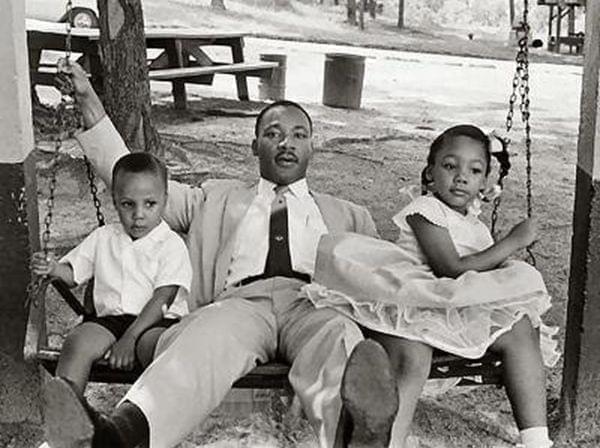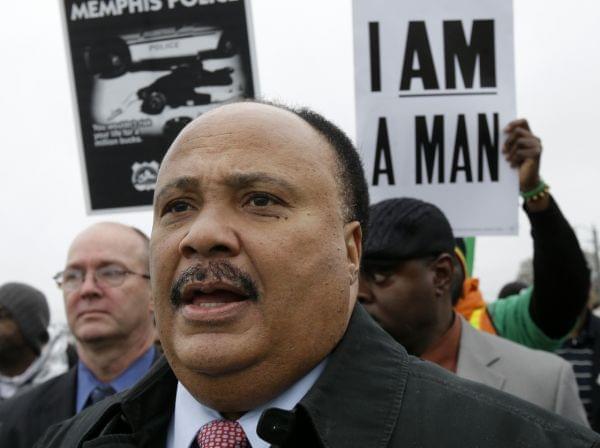What Happened To The Children Of Civil Rights Martyrs?
Most Americans think of Dr. Martin Luther King Jr. as a brilliant young minister who was one of the architects of the civil rights movement, and who was martyred for it in 1968, when he was assassinated. But to the revered leader's eldest son, Martin Luther King III — "Marty" to his family and friends — the famous Dr. King was just "Daddy." And like millions of other daddies across the country, he got pestered by his kids when they wanted something.
Martin King chuckles, remembering how he and his older sister Yolanda used to clamor to go to Fun Town and Six Flags. They frequently drove by those segregated amusement parks with their mother, Coretta Scott King, as they dropped off their father at the airport for one of his many out-of-town speaking engagements or rallies.
"We must have passed by Six Flags a hundred times," King recalls. "Many of those times, we were told, 'You're not able to go now, but Daddy's working on it, and one day we will be able to go.'"

Martin Luther King Jr sits on a swing with his children at an amusement park he helped desegregate. (Courtesy of the King family)
Like a lot of black parents in the segregated south, the Dr. King and Coretta Scott King tried to protect their children from the myriad indignities of Jim Crow. When the family did eventually get to visit the amusement parks that the Dr. King and his associates worked to desegregate, Martin King remembers that his father went with them "and rode on all the rides, and just enjoyed himself thoroughly." And they dressed, of course, in the accepted armor of respectability worn by protesters and integrators alike: their Sunday best.
Martin King recounts this and other stories from his childhood in his new children's book, My Daddy Dr. Martin Luther King, Jr. King III had been thinking about writing about his child's-eye view of his father for almost a decade, but the 50th anniversary of the March on Washington became a personal deadline. The book, written for young children, has just been published, three weeks ahead of the anniversary.
Now King and his wife Andrea have a 5-year-old daughter, Yolanda Renée. She was named for King's oldest sister who died suddenly in 2006. In the book, young Martin tells readers about the games he played with his father: "He tossed the football with me, taught me how to shoot hoops, tossed me up in the air and played with me..."
And King also retells stories of accompanying his father on marches from time to time. On one, they were confronted by a police officer "with a huge dog that growled at me. I was terrified." That is, he was scared until his dad took his hand and told him they would be fine.

Martin Luther King III takes part in a march on the 45th anniversary of his father's assassination in Memphis, Tenn. (Mark Humphrey/AP)
But Martin King did partly follow in his famous father's footsteps. He graduated from Morehouse College, his father's alma mater, and he participates in a fair amount of social and civic activism. (Two recent examples: he's been arrested in front of the Sudanese embassy for protesting the genocide in Darfur, and has demonstrated in favor of immigration reform.) He's a co-founder of Bounce TV, a broadcast channel aimed at African-American viewers.
And in a few weeks, he will be in Washington, D.C., at the 50th anniversary of the march. And there will, inevitably, be a recap of his father's globally-known — and now copyrighted — "I Have a Dream" speech.
As one of "my four little children" that Dr. King hoped would be judged not by his skin but by the content of his character, Martin King will be at the anniversary of the March on Washington as a witness for his own child. And to remind people of the different America his father helped create.
